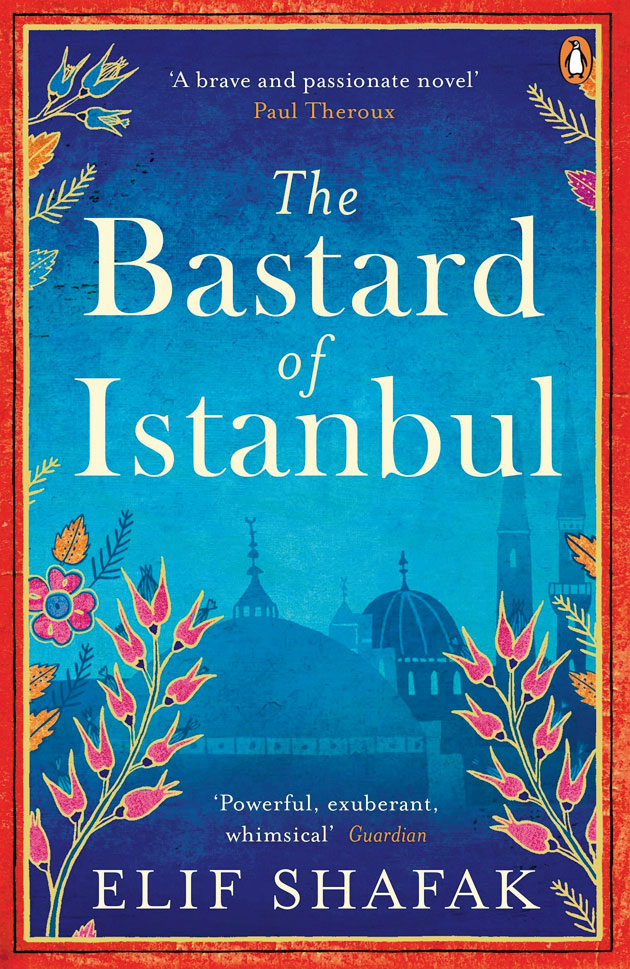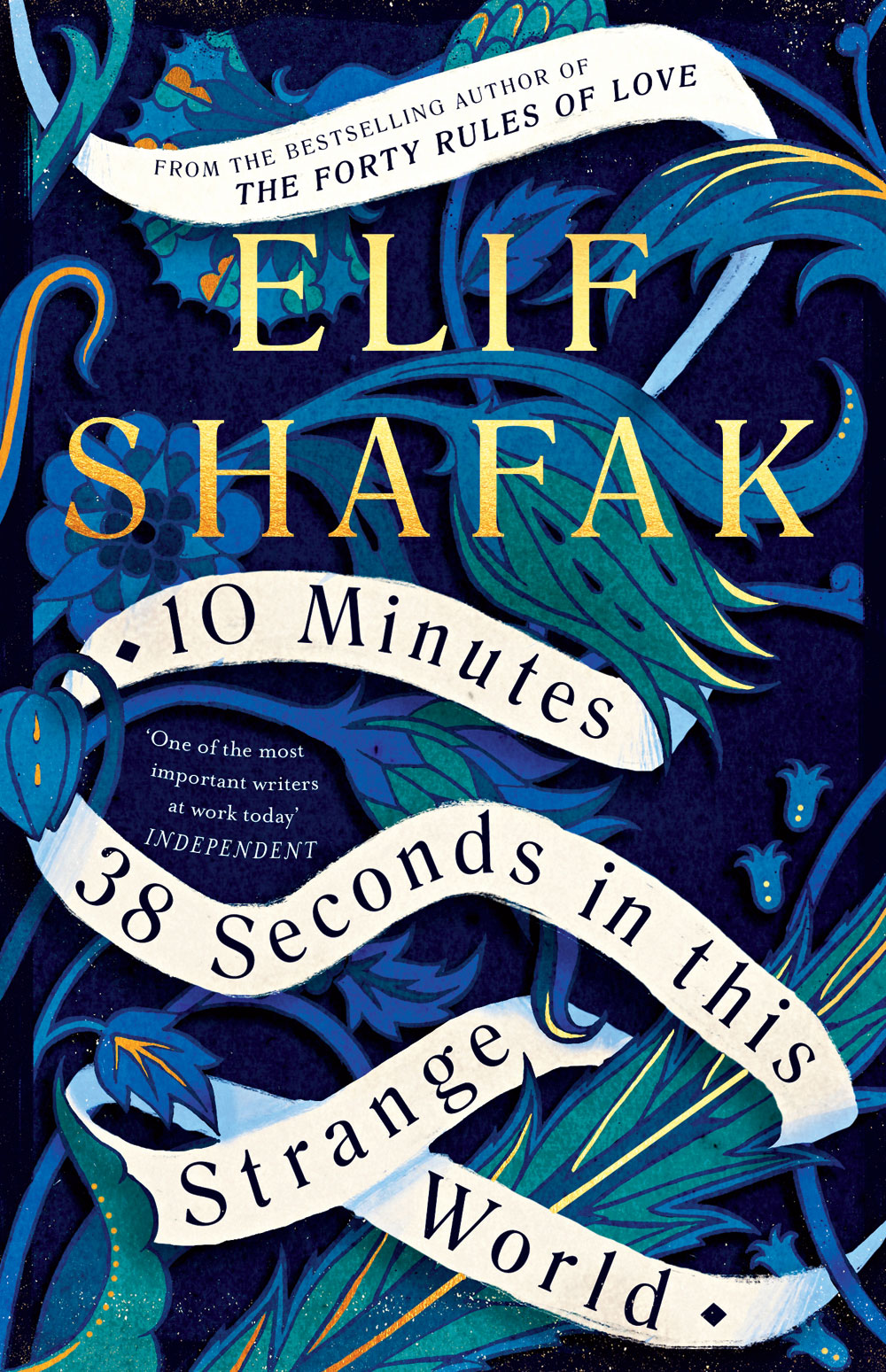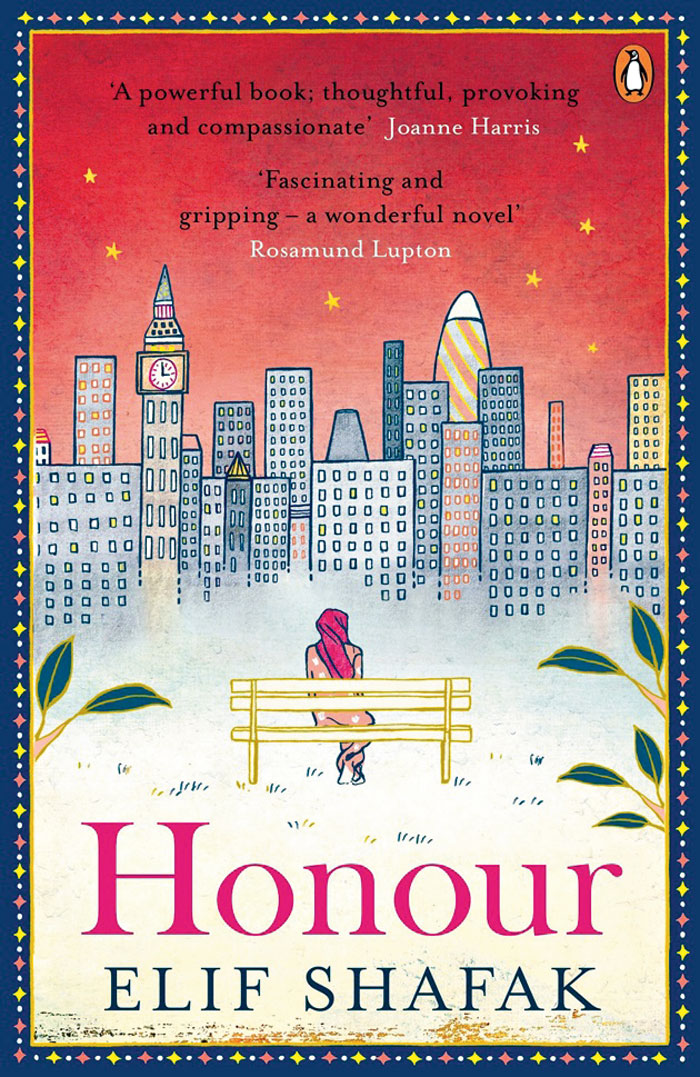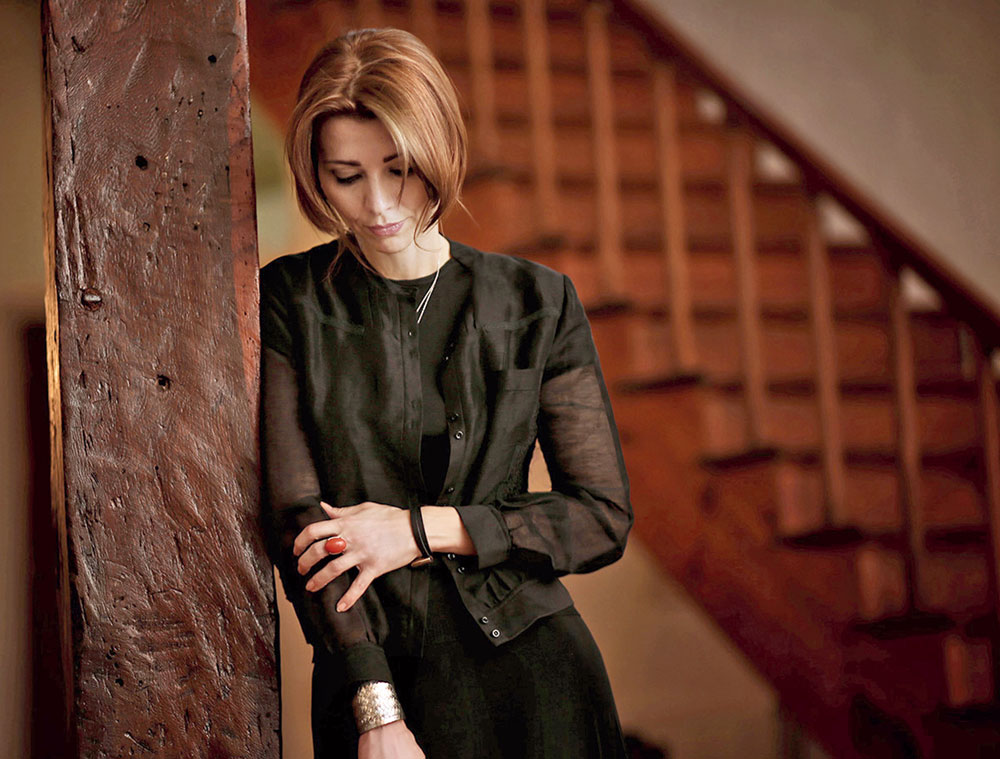A single copy of The Bastard of Istanbul with its red spine peeking out from the ‘For Sale’ pile at The Oxford Bookstore at Park Street was our first encounter with Turkish novelist Elif Shafak — a quiet voice of reason speaking of grave atrocities with the poise of a ballerina.
The year was 2006; Shafak had won many Turkish hearts and her journey on the world stage was just beginning. The protagonist Armanoush was setting sail to Istanbul to connect to her roots as complex family relationships collapsed and got rebuilt around her. However, her story, born out of Shafak’s imagination, led the latter to a trial in court for hurting Turkish sentiments by referring to the Armenian massacre as ‘genocide’. She was eventually acquitted and four years later, Forty Rules of Love followed, where Ella Rubenstein found parallels with her life to that of Rumi and Shams of Tabrez.
Many more novels and awards followed for Shafak and in the heart of all her novels remained one constant — Istanbul. Now, Shafak has given us a moving tale of love, loss and memories with 10 Minutes and 38 Seconds in this Strange World — a book that opens at the moment of the protagonist’s death. Murdered and dumped in the trash, Tequila Leila, a girl born to cruelties that afflict the heart, takes us on an unfathomable and excitable journey of her life — her parents, a home where playing with a hula hoop was a crime, running away from there towards a hopeful future, sex-work and five friends who all reside on the outskirts of social conventions. What we get is a novel that addresses sexual abuse with quiet nonchalance yet reeking of extreme pathos.
For that is what makes her Elif Shafak — a voice whose strength lies in its calm. As the Turkish government continues to attack her writing, we exchange words over e-mail where she manages to give life to an electronic conversation with gentle word of kindness and hope for a faceless name on her computer screen. Such is the person! Here are the excerpts…

Imagination was a dangerously captivating magic for those compelled to be realistic in life, and words could be poisonous for those destined always to be silenced — The Bastard of Istanbul (2006) (Sourced by the author)
Considering that you had to face trial for what you had written, how do you perceive ‘nationalism’ today?
Nationalism as an ideology and rhetoric always needs an “Other” and always needs some kind of duality and tension. But there is a rather naive perception among some liberals, democrats and progressives in some parts of the world. They think, “Well, our nationalism is different, it’s not like other nationalisms”. They think “their nationalism” is calm and benevolent and other people’s nationalism is destructive. But history has shown us, again and again, that it usually takes just one political crisis or one economic crisis for a “nice nationalism” to become destructive and aggressive. I am critical of all kinds of nationalism, tribalism, rigid identity politics. I am someone who believes in multiple attachments, multiple belongings. I have always made a distinction between patriotism and nationalism. It is lovely and very understandable for people to feel attached to the land they come from, to feel connected to the traditions of their ancestors, the culture, the music, the food, the folklore…. That is beautiful. The trouble starts the moment we divide humanity into “us versus them” and start to believe that “us” is better than “them”. In the age we are living, there is a growing populist nationalism and tribalism. We need to understand that democracy is a fragile eco-system. It cannot be taken for granted. We need to put effort and thought into keeping democracies healthy and alive.
Penalising artists and journalists for their work is becoming increasingly rampant in large democracies. Does that encourage you or discourage and exhaust you?
Authoritarian populism is essentially anti-intellectual. It is also anti-pluralism. It is not a coincidence that in Turkey, Hungary, Poland, Brazil, Venezuela… wherever there has been an increase in “illiberal and nationalistic populism” there has been a widespread attack from demagogues against universities and scholars, the media and journalists, literature and writers…. Populist demagogues like to pretend “the people” is a monolith. They behave as if “the people” have one voice, one view and they are the ones who represent that view. This is a lie. It is an illusion. Because “the people” is composed of many different views and multiple identities. But populists like to pretend this complexity does not exist. Anyone who speaks differently and speaks up critically can easily be labelled as “betrayer.” Erdogan’s AKP regime does this in Turkey. Thousands of academics have lost their jobs, journalists have been imprisoned, writers have been sued or jailed…. It is a difficult environment for authors. It is not only political taboos that are difficult to question, it is equally difficult to write about sexuality and gender. At the moment my fiction is being investigated in Turkey by a prosecutor because I write about issues, such as sexual harassment, gender violence, child brides. They want fiction writers to be quiet on these incredibly important issues. But we cannot be quiet.
When you do your research for a book, how do you keep the politics of the historical account separate from the facts?
I make a distinction between “information”, and “knowledge” and “wisdom.” These three are completely different things. I am not interested in information. There is so much of that, we are bombarded with information — and misinformation too. What I am interested in is increasing knowledge and searching wisdom. Knowledge requires you to slow down, you cannot rush. You have to look within and also see the connections. Wisdom is even harder because it requires you to bring together the mind and the heart, it requires emotional intelligence. I am a big believer in the need for emotional intelligence. For that, we have to constantly read, research, think, analyse but that’s not enough. We must also constantly feel, question, connect, listen, have compassion and empathy.
How big or important is the responsibility of a fiction writer to address issues like ‘collective amnesia’ of a generation that you have often spoken about, or feminism or climate change?
If you happen to be a fiction writer from wounded democracies, such as Nigeria, Turkey, Venezuela, Brazil, Egypt… the list is so long and it’s getting longer — you do not have the luxury of being apolitical. You cannot say, “I am just going to write my stories, I don’t want to think about or talk about what is happening outside my window”. I care about what’s happening outside the window. Also, as a feminist, I do know that politics is not only about political parties or elections. The personal is also political. Wherever there is power there is politics. Again, if you define politics in such a broad way, you cannot be non-political. But here is the thing: I don’t think fiction writers should ever preach. Or try to teach. Not at all. Our job is not to try to give the answers. Our job is to ask the questions. I will always leave the answers to the readers and respect their diversity.

10 Minutes 38 Seconds in this Strange World; Penguin Random House; Rs 699 (Sourced by the author)
There has been significant impact of political events on your fiction in most of your books. How did you decide to set 10 Minutes 38 Seconds in this Strange World in the time you did since no event of national significance has any immediate impact on the characters?
My novel tells the story of a sex worker in Istanbul called Tequila Leila. This is a story that focuses on the lives of outcasts. But at the same time it tells the story of Turkey and the Middle East through the eyes of these outcasts. The Istanbul that Leila has lived is not the Istanbul that the Ministry of Tourism in Turkey would have wanted foreigners to see. The history and the political realities that I write about in this novel are not the narrative that Turkey’s official historians would want you to know or talk about.
The love that ties the friends together in 10 Minutes 38 Seconds in this Strange World is selfless love at its best. Except for Sabotage Sinan, everyone has a past they wish they hadn’t faced. Do you somewhere think only those who are less fortunate are capable of selfless love?
Life is a constant journey. This is true for everyone.That’s why we should not be too certain, too rigid about our own truths. There is a reason why all the mystics have advised us to be a little bit confused. Sell your certainty and buy bewilderment, that’s what Rumi advised. My novel deals with heavy and dark subjects but it is a story full of humour and life and energy. It is a life-affirming book that celebrates diversity and friendships. We have two types of families in life: our blood family, which is the family we are born into, and then the water family, which is composed of our very dear friends. The number of those close friends cannot be too many, only a few. Sometimes water families can be the ones that keep us strong, keep us going.
What kind of research went into 10 Minutes 38 Seconds in this Strange World?
I am a curious mind and I love reading, researching, but then there comes a moment when you stop reading and researching and you are ready to imagine. When I imagine my stories, I do so with instinct and heart rather than with information or logic. I like to tell untold stories and I like to also listen to people. For this novel I have spoken to so many outcasts, visited the Cemetery of the Companionless where many outcasts are sadly buried; I have been reading and reading history… unofficial history.
Looking at the backstories of Leila’s five friends, all of them didn’t seem to be important inclusions. Was that deliberately done to keep the focus on Leila?
There are different ways of storytelling, as we travel from one culture to another. I was raised by two women — my mother and my grandmother. Grandma was not a very educated woman but she was very wise and she would tell me stories of the Middle East. And the technique in these oral stories is always layered — stories within stories. You open a door and there is another door inside. I like to bridge written culture and oral culture in my work. I like to bring together the Western canon of the novel with Anatolian and Balkan and Middle Eastern techniques of oral storytelling.
“Clothes are political” — is it possible to document history without fashion and vice versa?
Clothes are political indeed. In Turkey, moustaches and beards and hair can be highly political as well. For women the differences can be even sharper. The headscarf, the mini skirt, heels, the veil, the cut and colour of the hair… I pay attention to nuances and to how those nuances are being perceived by the society. Political and cultural history is closely connected with the history of fashion.
At your hopeful best, who do you imagine reading your books?
My readers are incredibly diverse, I am aware of this. They come from all ethnic, cultural, social backgrounds and age groups. Perhaps people who don’t talk to each other much or break bread together read the same novel — this makes me happy. I believe the doors of literature should be open to everyone, regardless of races, tribes and boxes. I believe literature needs to defend a new, radical, bold humanism.

You could call your child ‘Honour’, as long as it was a boy. Men had honour. Old men, middle-aged men, even school boy so young that they still smelled of their mother’s milk. Women did not have honour. Instead, they had shame. And, as everyone knew, Shame would be a rather poor name to bear. — Honor (2011) (Sourced by the author)
How important are awards and recognition to you?
I have never been the elite’s writer to be honest. In Turkey I have relentlessly been attacked, belittled, targeted by the political and cultural elite. It is thanks to fiction readers and literature lovers that my books have become widely read in my motherland. In Turkey, a book is not a personal possession. If a reader has finished reading a book she enjoyed, she does not put it back on her bookshelf, she passes it on… she shares it with her aunt and the aunt reads and then gives the book to her neighbour and the neighbour sends it to her daughter after reading it and so on. People share books. That word-of-mouth sharing is very precious and heart-warming.
Who is your favourite among the characters you have created till date?
It is really impossible for me to choose one single character. Each and every one of my fictional characters has been close to my heart, part of my soul. Even the characters that might be flawed, perhaps especially those. I don’t like perfection. I don’t believe in heroes either. Bertolt Brecht said, “unhappy is a country that is in need of heroes”. Similarly, immature is the literature that is in need of perfect heroes.
What do you enjoy writing more in — Turkish or English?
If I am writing about sorrow, melancholy, longing, I find it easier to express these feelings in Turkish. If I am writing about humour, satire, irony, definitely I find it much easier in English. And perhaps the challenge is that my fiction has both elements strongly — sorrow and humour. I like to commute between languages. It really is hard work. I write in English, then my novels are translated into Turkish by a professional translator, after which I take that translation and I reshape it with my own vocabulary and sense of rhythm. It’s a bit insane. But I love languages. I love words.
Has social media and technology impacted the world of publishing?
Social media is like the moon, it has a bright side, for sure, but it also has a dark side. For a very long time people have only focused on its bright side. It is high time we are aware of its dark side and talk about it and do something about it. Authors are particularly swimming against the tide, in the age of fast consumption, information, attention deficit and apathy, novelists are defending slow introspection, knowledge, wisdom and empathy. It is a struggle.
Who is your favourite author?
I read both fiction and non-fiction —history, philosophy, neuroscience... I believe writers should be good readers all their lives. I also do not like those artificial dualities of “high-brow literature versus low-brow literature.” What does that even mean? I can read anything — cookbooks, poetry, mysticism, political philosophy, women’s magazines, detective novels…. I do not belittle any field or any genre. Here is the key — I believe we must allow ourselves to be challenged, intellectually and spiritually. So it’s better to read across cultures and genres and styles. I think it’s better when a fiction writer reads neuroscience or a scientist reads poems or a poet becomes interested in physics or an architect in music. These are the conversations that will move us forward. Otherwise everyone stays in their comfort zones.
What’s your writing regimen like?
It seems to me that it’s mostly writers of a certain age and privilege who are extremely proud of their precise and intact schedules day after day. Sometimes I write during the day but sometimes during the night, depending on the day’s flow. I am a mother, I have many responsibilities. So I will juggle several things like all women do. I don’t like silence. There has to be noise around when I am writing. I listen to loud and dynamic music on headphones. I listen to gothic, industrial, symphonic metal and metalcore usually. The louder the music, the calmer my writing.
What can we expect next from your desk?
I think I have always had an inner pendulum. When I am in the midst of a novel I stay in my imaginary zone surrounded by my fictional characters and I don’t even want to go out. I cut my own hair and I try to avoid society as much as I can. I am a hopeless introvert anyhow. When the book is over, however, after so many months, then I guess I become a more normal and social human being. I do lots of events, I give talks. I believe in the transformative power of words — written and spoken. At the moment I am doing several literary festivals, giving talks, listening to different people, but also listening to the universe. Until I go back to my imaginary cocoon.











